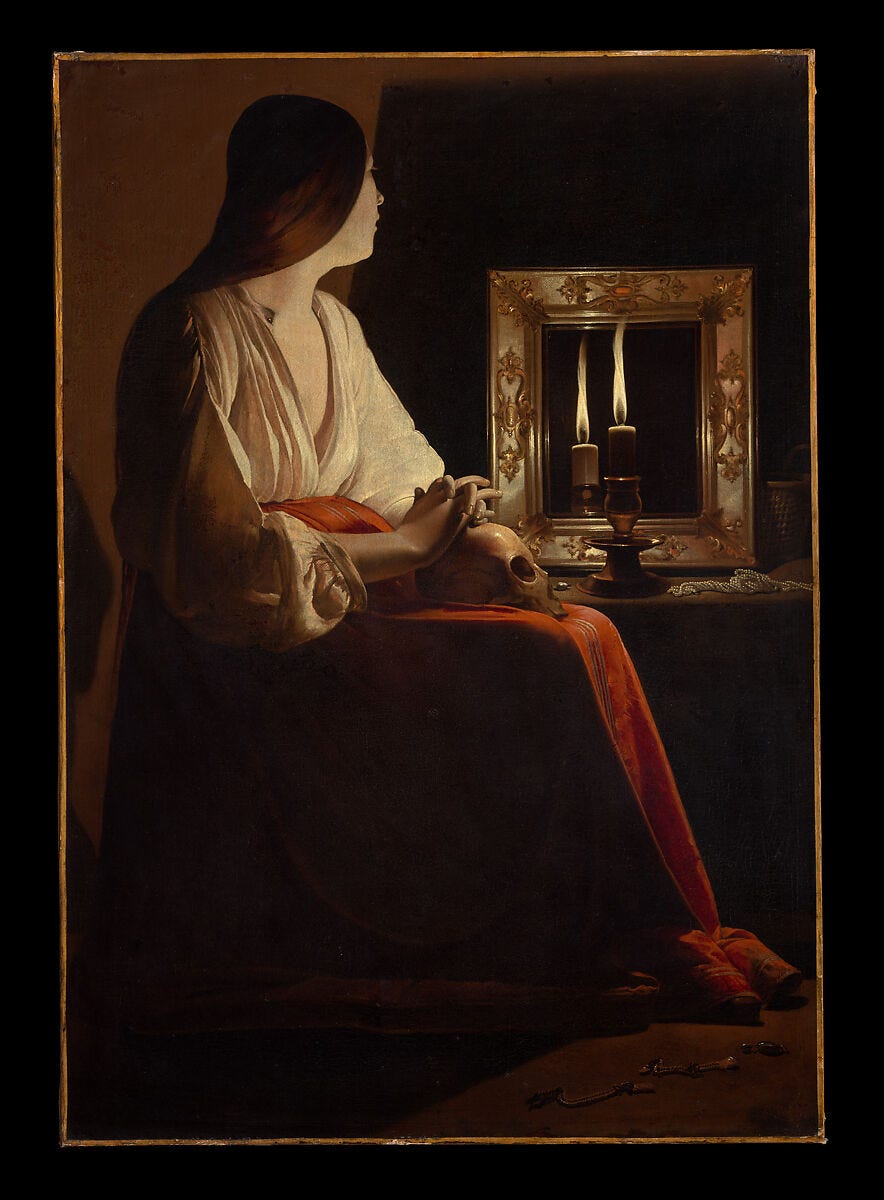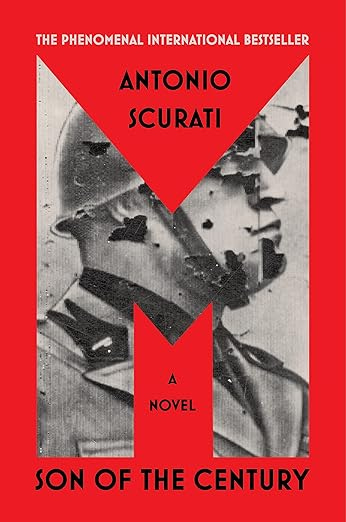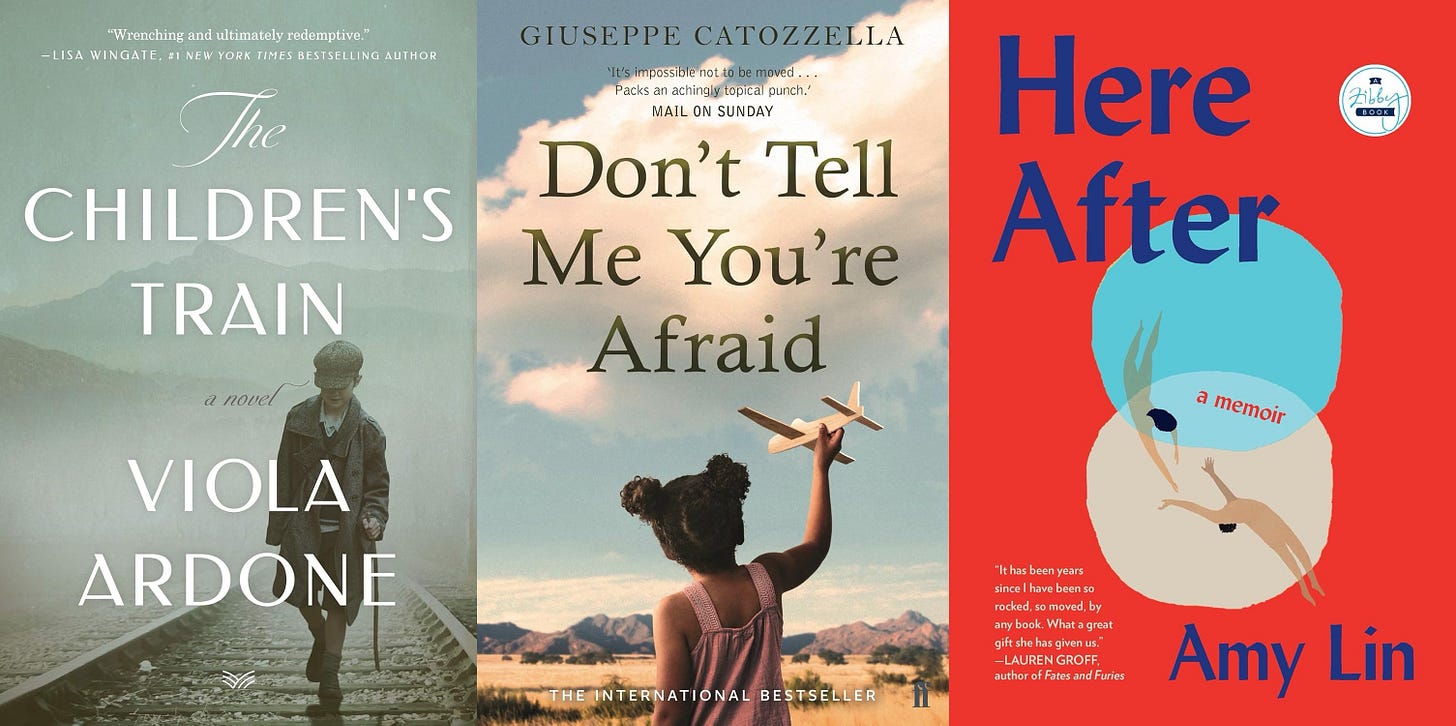(The Pentitent Magdalen, Georges de la Tour, ca. 1640; The Met)
As I wrote in the last newsletter, I’ve been listening to Antonio Scurati’s novel M: Son of the Century, about Benito Mussolini. I’m only up to late 1921, just shy of a year before Mussolini would become prime minister of Italy, then dictator, then ... we all know the rest.
Scurati’s novel is dense with historical context, detailing the unrest throughout Europe following World War I, with governments changing left and right, and populism on the rise. Sound familiar? Consider this, from a November 1924 letter by Anna Kuliscioff, an activist physician, referencing a piece by Mussolini, “who announces the need for a dictatorship, or rather a dictator, who of course is himself, in order to save Italy.”
Change some dates and much of the book sounds contemporary. The word “despair” comes up far too often in conversation with friends these days.
Meanwhile, I’m working on a novel that, much like the one that’s coming out in May, is ... humorous?
For sure, I’ve wrestled with the concept. Most of my previous mysteries feature underlying societal and environmental issues. This hardly seems the time for a hard swerve into humor.
I’ve managed to wrap my head around the disconnect by seeing my characters’ humor as a form of subversiveness, my own nod to Margaret Atwood’s “nolite te bastardes carborundorum.”
For sure, these characters – nearly all of them in their latter years – are not going gently into that good night. They’re obstinate, quarrelsome and fiercely independent, but they also enjoy a helluva laugh at one another’s expense and even more when they’ve bested the foe of the moment.
Spending time with them has proven an antidote to the daily headlines. Those (aspirational) thousand daily words often comprise the brightest part of my day. When I do step away from the keyboard, I try to keep my focus close – the quiet beauty of the fallow fields, the Canada geese flying their daily sorties, the latest baking project turning the kitchen into a floury mess.
In just a couple of days, we’re all supposed to be dredging up resolutions for the coming new year. I suspect mine will be rooted in the lessons I’ve learned in the seemingly interminable weeks since Nov. 5: that the darkness is indeed vast, but the light of small things sustains. Let’s hope it grows.
Bakes of the month: Panettone and anginetti
I’ve spent the last two Christmas seasons in Italy, first in Sicily and then in Umbria. In each, panettone - the fruit-studded sweet bread sold in colorful cardboard containers stacked high in every grocery store - was inescapable. So this year, I took a stab at making my own.
We were throwing a family party, so I needed more than just bread. My Italian grandmother and aunts made trays of these iced, lemon-flavored cookies known as anginetti for every special occasion. I topped some with sprinkles and others with lemon zest. They’re perfect with espresso.
What I’m reading
Maybe it’s the melancholy of December, but this month’s reads featured a trio of heart-rending books, albeit each beautifully written and impossible to put down.
Viola Ardone’s novel The Children’s Train is based on a well-meaning post-World War II program to take poor children from the blasted neighborhoods of Naples and place them for a time with wealthier families in northern Italy. There, they’d be well-fed, warmly clothed and educated – so the reasoning went. And they were, but with the predictably agonizing development that faces anyone torn between two homelands. A film based on the book is out on Netflix.
Don’t Tell Me You’re Afraid, by Guiseppe Catozzella, likewise deals with actual events, in this case, the story of Somali runner Samia Yusuf Omar, who represented her country in the 2008 Beijing Olympics. Determined to compete in the 2012 London Olympics, she undertakes The Journey. The hellish, months-long route across the desert and then onto the Mediterranean to hoped-for safety in Europe has proven deadly to tens of thousands of migrants. Riveting and heartbreaking, A film based on her life was released this year.
Here After. I read Amy Lin’s memoir - about the sudden death of her 32-year-old husband - in a single sitting after hearing this recommendation from NPR’s Beck Harlan: “If you're grieving, if you know someone who's grieving or if you just appreciate such a generous window into someone else's experience, it's an honest and beautifully written book.” Lin doesn’t sugar-coat the experience, something that – for me – came as a relief.
Appearances
It felt a little like old home week when I joined Mark Stevens to talk with David Freed’s Harvard Extension School class about making the transition from journalism to fiction. I’ve known Mark since my Denver days, David and I shared a publisher with our early novels, and all three of us were journos in our former lives. The students’ questions were predictably sharp and, while we tried not to soft-pedal the hard realities of the publishing world, I hope we also left them with a clear sense of why this writing life is so worthwhile. (David’s seventh in his Cordell Logan series, Deep Fury, released this month; Mark’s most recent is The Fireballer. Check ‘em out.)
*
A reminder that at 2 p.m. on Saturday, Jan. 11, I’ll be among the writers taking part in The Best of Delmarva Review 2008-2023 Reading,” at The Writer’s Center, in Bethesda, Maryland.
Sign me up
I love talking with groups about books or writing in general, either in person or via the magic of Zoom. I also give writing workshops, perfect for libraries and writing groups. Interested? You can contact me via my website or by messaging me here.








